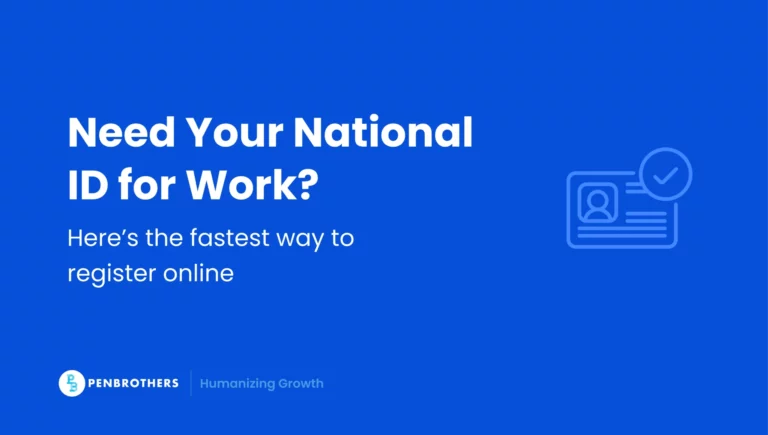The label “third world country” is often associated with underdevelopment, poverty, and political instability. For many businesses exploring outsourcing or expansion, this outdated perception may cause hesitation when considering the Philippines as a viable business hub. However, in today’s globalized economy, it’s crucial to challenge these misconceptions and recognize the Philippines as a rapidly evolving market with tremendous business potential.
In this article, we’ll address these myths, explore the Philippines’ economic realities, and outline why it’s becoming a preferred destination for outsourcing and business ventures in the 21st century.
Key Takeaways
- An Obsolete and Inaccurate Label: The term “third world country” is an outdated Cold War-era classification. The Philippines is now accurately recognized by global institutions like the World Bank as one of the fastest-growing emerging markets in its region.
- A Hub for High-Value, Skilled Talent: The country’s primary business advantage is its large, highly educated, and English-proficient workforce, which ranks 2nd in Asia for English skills. This makes it a global leader for outsourcing high-value, complex services.
- A Pro-Business and Growing Economy: The Philippine economy is not stagnant. It is projected to grow by 5.9% in 2025, supported by a dominant BPO industry (projected to reach $59 billion by 2028) and pro-business government reforms like the CREATE Act, which lowered corporate taxes.
- Safety is Contextual and High in Business Districts: Like most major countries, safety is location-dependent. Key business and expatriate hubs like Bonifacio Global City (BGC) and Makati are highly developed, master-planned communities with private security and infrastructure comparable to other global business centers.
- Focus on Competitive Value, Not “Cheap Labor”: A salary of $500 USD per month is not a competitive wage for the skilled, college-educated professionals that global companies seek. Companies outsource to the Philippines to access high-value talent at a globally competitive rate, which is still 60-70% more cost-effective than an equivalent hire in the West.
The Obsolete Classification of “Third World”
The term “third world” was originally coined during the Cold War to categorize countries that were not aligned with either the capitalist or communist blocs. Over time, this label became synonymous with developing nations. Today, however, this classification is no longer relevant. Modern frameworks for assessing a nation’s economic development—such as those used by the World Bank and the United Nations—focus on measurable indicators like GDP, human development, and income levels, which paint a much clearer picture of a country’s current status.
The Philippines once considered a developing economy, now falls into the category of an emerging market, experiencing steady growth and development in key sectors. The term “third world” no longer applies to the Philippines, especially given its evolving infrastructure, burgeoning workforce, and expanding business opportunities.
Economic Growth and Emerging Market Status
One of the most pervasive myths about the Philippines is that it remains economically stagnant or underdeveloped. Contrary to this belief, the country has experienced robust economic growth in recent years. Contrary to this belief, the country’s economy demonstrates consistent resilience. The World Bank, in its latest 2025 outlook, projects the Philippine GDP will grow by 5.9% in 2025 and 6.0% in 2026. This trajectory positions it as one of the fastest-growing economies in the East Asia and Pacific region, decisively moving it beyond any “stagnant” label.
Further evidence of the Philippines’ economic maturity is its stable flow of foreign direct investment (FDI). While 2023 saw anomalous post-pandemic surges, full-year 2024 data from Bangko Sentral ng Pilipinas shows a more normalized net inflow of USD 8.9 billion. This stabilization points to a mature investment climate where sectors like IT, business process outsourcing (BPO), and manufacturing see sustained, long-term confidence rather than volatile, speculative spikes.
When compared to other outsourcing powerhouses like India, Vietnam, and Mexico, the Philippines stands out due to its strong economic fundamentals, political stability, and favorable business environment.
India still leads as a larger outsourcing hub but faces infrastructure challenges and a complex regulatory environment that can make it less attractive to foreign investors.
Vietnam, though growing rapidly, lacks the well-established BPO infrastructure that the Philippines has spent decades cultivating.
Mexico’s proximity to the U.S. makes it appealing, but it falls short in areas like English proficiency and cost-efficiency, where the Philippines excels.
Infrastructure Development: A Rising Business Landscape
In recent years, the Philippines has undergone significant infrastructure upgrades that have enhanced its attractiveness as a business destination. Cities such as Metro Manila, Cebu, and Davao have seen massive improvements in transportation, communication, and energy, creating a more conducive environment for business operations.
For instance, Metro Manila has benefited from large-scale infrastructure projects such as the MRT-7 extension and Skyway Stage 3, which have alleviated traffic congestion and boosted connectivity across the region. Meanwhile, Cebu and Davao are quickly establishing themselves as alternative hubs for BPO and tech companies, thanks to their modern office spaces and international connectivity. The commercial real estate market reflects this new business landscape. While the sector faces high vacancy rates from the exit of online gaming operators, this has triggered a “flight to quality.” A 2025 report from Colliers notes that BPO and IT companies are bypassing older buildings to lease 1.1 million square meters of new, high-quality office space. This signals a clear demand for modern, Grade-A facilities that support sophisticated, long-term operations.
A Highly Skilled, English-Speaking Workforce
The Philippines is home to one of the largest pools of highly educated and English-speaking professionals, which is one of the key factors driving its success in the outsourcing industry. Each year, more than 800,000 students graduate from universities, with many specializing in fields like STEM and business, ensuring a steady supply of qualified talent.
The country’s English proficiency further differentiates it from other outsourcing destinations. Ranked 2nd in Asia and 22nd globally in the EF English Proficiency Index 2024, the Philippines maintains its “High Proficiency” rating. This distinction underscores the country’s unique ability to deliver nuanced, high-quality services in customer support, technical services, and complex back-office functions.
Compared to countries like India and Vietnam, the Philippines has an undeniable advantage in industries requiring fluent English communication, especially in customer-facing roles such as call centers and IT help desks.
Government Support: A Pro-Business Approach
In recent years, the Philippine government has rolled out a series of business-friendly reforms designed to attract foreign investment and streamline operations for companies. The country’s Ease of Doing Business ranking has improved, thanks to measures that simplify processes such as business registration and tax filing.
In addition, the government has launched programs like the Philippine Economic Zone Authority (PEZA), which offers tax incentives and customs duty exemptions to businesses in certain sectors, particularly in IT and BPO. The CREATE Act, which reduced the corporate tax rate from 30% to 20%, further enhances the Philippines’ appeal as an investment destination.
The BPO Sector: Philippines as a Global Leader
The Philippines continues to dominate the global BPO market. The IT and Business Process Association of the Philippines (IBPAP) reported that the industry exceeded its 2024 targets, generating USD 37.4 billion in revenue. The industry is now on track to add over 1.1 million new jobs and generate USD 59 billion by 2028, proving its foundational role in the country’s economic future. With a strong focus on voice-based services such as customer support, alongside IT and back-office services, the Philippines has earned its place as the second-largest outsourcing destination globally, behind India but ahead of other competitors like China and Malaysia.
The country’s skilled workforce, cost-effective operations, and superior English proficiency make it an attractive option for businesses looking to outsource customer service, IT support, digital marketing, and more.
The Philippines as a Global Business Hub
The Philippines’ increasing importance as a business hub is further evidenced by its growing presence in global business forums and trade agreements. Additionally, the Philippines’ appeal extends beyond cost efficiency. The country offers an excellent quality of life for expatriates, along with an environment where multinational companies are flourishing. This includes global giants like Accenture, Teleperformance, and Concentrix, which have established significant operations in the Philippines to take advantage of the country’s competitive advantages.
The Philippines Is a Business Powerhouse, Not a Third-World Country
The outdated term “third world” does not accurately reflect the modern-day realities of the Philippines. With its solid economic growth, skilled workforce, expanding infrastructure, and business-friendly environment, the Philippines is undeniably an emerging market with vast opportunities for businesses. Its thriving BPO sector, continued investments in infrastructure, and attractive tax policies further position the country as a prime location for business expansion and outsourcing.
Is the Philippines a Poor or Rich Country?
Neither. The question itself misses the point.
Countries don’t fit neatly into “poor” or “rich” categories anymore. The Philippines sits in that vast middle ground where most of the world’s economies actually live: growing, changing, building something new from something old.
But numbers tell stories. Let’s look at them.
The Philippines has a GDP projected to exceed USD 471 billion in 2025, making it the 32nd largest economy globally. Per capita income has risen to nearly USD 4,000 as of 2024. That’s not rich by Western standards, but it is not poor by global ones. More telling is the direction. According to the Philippine Statistics Authority, the nationwide poverty incidence fell significantly to 22.4% in the first half of 2023, with the government on track to meet its goal of 14% by 2028.
The middle class has tripled in size over the past two decades. Urban areas like Metro Manila and Cebu show income levels comparable to emerging European markets.
The real story lives in the details. Walk through Makati’s business district and you’ll see glass towers housing multinational corporations. Drive through Taguig’s BGC and you’ll find shopping centers that rival those in Singapore. Visit the call centers in Ortigas and you’ll meet college graduates earning salaries that let them buy cars, send kids to private schools, and travel abroad.
Yet poverty persists in rural areas. Infrastructure gaps remain. Income inequality is real and visible.
This is what economists call an “emerging market.” Not poor, not rich, but moving. The trajectory matters more than the current position. And the Philippines’ trajectory points consistently upward.
Consider this: the country attracts $10 billion in foreign direct investment annually. Poor countries don’t see that kind of confidence from global investors. Companies like Google, Microsoft, and Amazon continue expanding their Philippine operations. That’s not charity. That’s business calculation.
The middle class drives consumption that powers economic growth. Shopping malls overflow on weekends. Restaurants stay busy. The domestic market for everything from smartphones to cars grows every year. These aren’t the patterns of a poor country.
But calling the Philippines “rich” would be equally wrong. Challenges remain substantial. Rural development lags behind urban growth. Healthcare and education need continued investment. Climate change poses real threats to economic progress.
The more accurate description: a country in transition. One where opportunities coexist with obstacles. Where progress lives alongside persistent problems. Where the future looks brighter than the past, even when the present feels complicated.
For businesses considering the Philippines, this matters. You’re not partnering with poverty. You’re engaging with growth. You’re entering a market where spending power increases, infrastructure improves, and workforce skills continue developing.
The question isn’t whether the Philippines is poor or rich. The question is whether you understand what you’re looking at: an economy that’s written its own story of transformation and isn’t finished writing yet.
Is the Philippines a safe place to live?
For business leaders and expatriates, this question is practical. The answer, like in most emerging markets, is about location and context.
Major business districts like Makati, Bonifacio Global City (BGC) in Taguig, and Ortigas Center are highly developed, master-planned urban areas. They feature private security, modern infrastructure, and concierge services in residential and commercial buildings, creating a secure environment comparable to business hubs in Singapore or Kuala Lumpur.
While countries like the United States and Australia issue travel advisories, these warnings are almost exclusively focused on specific remote provinces in the far south (Mindanao) due to internal conflicts, areas far removed from business operations. For foreign staff living and working in the primary economic zones, safety concerns are typically limited to the standard petty crime and traffic risks found in any major global metropolis.
Is $500 a lot of money in the Philippines?
This question is central to understanding the Philippine talent market. The answer is no, but the context is critical.
While USD $500 (approximately PHP 29,000) is significantly higher than the national minimum wage, it is not a competitive salary for the type of skilled, English-speaking, and college-educated professionals that global companies seek for outsourcing.
In Metro Manila, a junior-level professional (like a customer service representative or admin assistant) earns between $600 and $900 per month. A mid-level specialist (like a Senior Accountant or Software Developer) will command $1,200 to $2,500+.
The $500 figure creates a false impression. Companies do not come to the Philippines to hire “cheap labor”; they come to access a high-value talent pool at a globally competitive cost. The goal is not to find the cheapest person, but to build a loyal, world-class team that is paid a competitive, motivating wage—a wage that is still 60-70% more cost-effective than an equivalent hire in North America or Europe.
Penbrothers: A Partner in Seamless Business Expansion in the Philippines
At Penbrothers, we understand that successfully navigating the complexities of outsourcing to the Philippines requires a strategic, hands-on approach. That’s why we take a consultative approach with each client, working to understand their unique needs and tailoring our services accordingly.
Our Hypercare Framework ensures that your business receives continuous support throughout its outsourcing journey, providing personalized attention, compliance guidance, and seamless integration into the local business environment.
Whether you are considering outsourcing or planning an expansion in the Philippines, Penbrothers is your trusted partner in ensuring a smooth and successful transition into one of the world’s most dynamic and promising business destinations.
By partnering with Penbrothers, you’ll gain access to a team that is dedicated to ensuring your business operations are efficient, compliant, and cost-effective. Let us help you unlock the full potential of the Philippines as a business hub and growth destination.
Frequently Asked Questions
No. This is an outdated and inaccurate term. The Philippines is correctly classified by modern economic institutions as a strong emerging market with one of the fastest-growing economies in the East Asia and Pacific region.
It is neither; it is a country in transition. While it still faces challenges with poverty and inequality, it has a rapidly growing middle class, a GDP projected to exceed $471 billion in 2025, and attracts billions in foreign direct investment, all of which are characteristics of a dynamic emerging economy.
The Philippines is a top destination due to its unique combination of a large, highly skilled, and educated workforce; exceptional English proficiency (ranking 2nd in Asia); a mature and massive BPO industry; and significant cost-effectiveness.
Yes. The primary business districts where international companies and expatriates are concentrated, such as Bonifacio Global City (BGC) in Taguig and the Makati CBD, are highly secure, modern, master-planned communities with 24/7 security and infrastructure comparable to other global hubs.
No. While $500 USD (approximately ₱29,000) is well above the minimum wage, it is not considered a competitive salary for the skilled, college-educated, and English-speaking professionals that international companies hire for outsourcing. A competitive salary for a mid-level specialist, for example, would be significantly higher.






